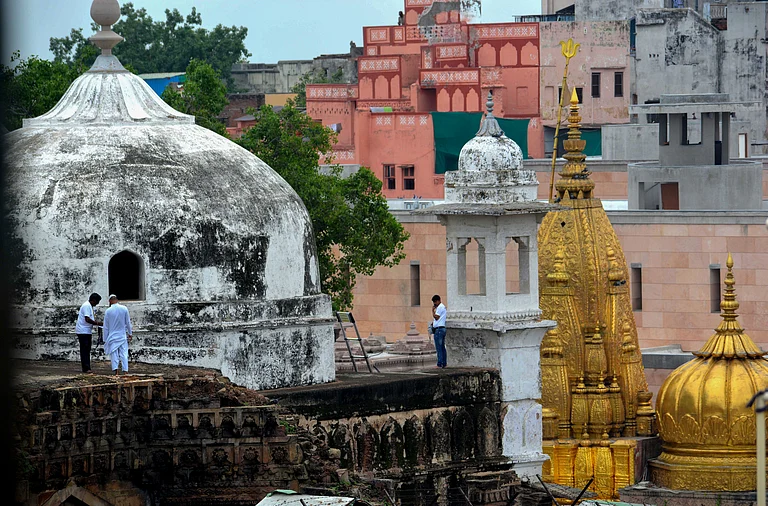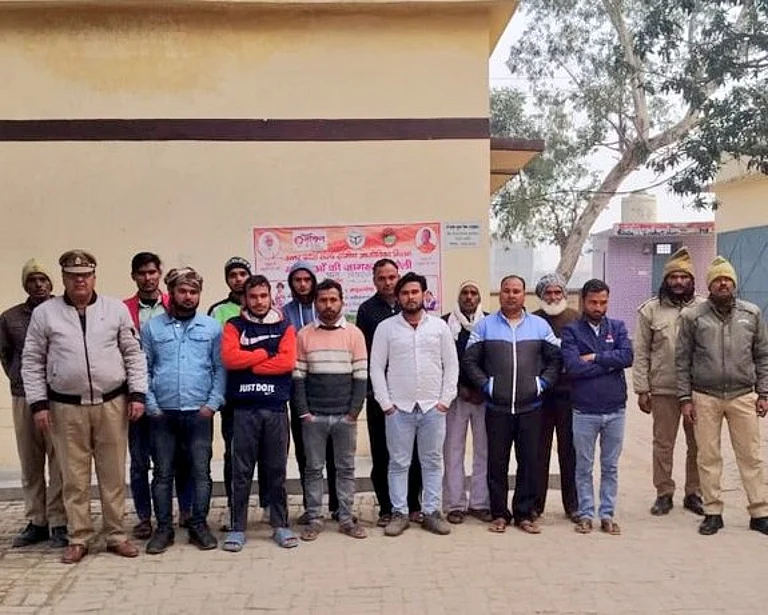A controversy broke out at Gujarat University in Ahmedabad on Saturday after a few international students offering namaz in the hostel building were allegedly attacked by a mob of about 20-25 people. At least five students were injured, two of whom had to be hospitalised. Videos of the alleged assault circulated online, the Ministry of External Affairs (MEA) stepped in and an FIR was registered following which the Gujarat Police has arrested five people so far. At the same time, Gujarat University Vice-Chancellor Neerja Gupta has said that “cultural sensitivity” sessions will be carried out to train foreign students. The varsity has about 300 foreign students.
Gupta’s remarks have shifted the focus from the violence itself to the foreign students who have been blamed for not being sensitive to Gujarat’s society. It has also stirred a row about whether offering namaz was the only trigger to the violence or it was also about the food they eat.
What actually happened?
Around 10:30 PM on Saturday, five international students were offering namaz during Ramzan. They were from Sri Lanka, Turkmenistan, Afghanistan and African nations pursuing different courses under Indian Council for Cultural Relations (ICCR) scholarships. Since there is no mosque on campus, the students gathered at a spot in the hostel building to offer namaz.
A mob of about 20-25 people, armed with sticks, entered the campus and asked them to go to a mosque and offer namaz. As they refused, a scuffle broke out and led to stone pelting and vandalism. Videos of this went viral on social media. Reports say that the mob chased the students to their rooms. A student from Afghanistan told NDTV that the people in the mob raised slogans, attacked them and broke laptops, phones and damaged bikes.
In another video doing rounds online, a person is seen asking the security guard, “Why are they offering namaz here? Is this a place to offer namaz?” Seconds later an agitated student runs towards the man and starts slapping him. Some have claimed this triggered the violence.
An FIR was registered against 25 people on charges including rioting, illegal assembly, intentional harm, property destruction and criminal trespass. Five have been arrested so far. The university is shifting foreign students to the NRI hostel while local students have been allocated the G+9 block.
Is it a question of cultural sensitisation?
While an investigation is underway to nab the rest of the people who caused unrest on the college campus, Vice Chancellor Gupta’s remarks about sensitisation have kicked up a debate. Speaking to the media, Gupta said, "These are foreign students and when you go abroad, you must learn cultural sensitivity. These students need an orientation. We will sit with them, provide cultural orientation and discuss how to strengthen their security."
According to an Indian Express report, Gupta, who has served as the coordinator of the Study Abroad Programme (SAP) for 16 years before her current position, said that there was a need for foreign students to be “mentored” in terms of cultural assimilation. Stating that offering namaz cannot be the trigger, she also highlighted there is a need for sensitisation towards the “vegetarian society” like Gujarat. She claimed that foreign students eat non-vegetarian food and that dumping of the leftovers could be an issue.
Her reaction also came one day after the Gujarat High Court chose not to initiate suo motu cognizance in the attack, emphasising the role of law enforcement in addressing the matter. Chief Justice Sunita Agarwal stressed the importance of legal channels for seeking recourse on specific issues related to the incident.
Is Gujarat a vegetarian society?
According to the Sample Registration Survey of 2014, Gujarat has a 40 per cent non-vegetarian, meat-eating population, higher than in Punjab and Rajasthan. These numbers do not include only Muslims, Christians and Parsis, but also OBCs, Dalits and Tribals.
However, vegetarianism is often promoted by certain groups in the state. Many school and college canteens in Gujarat restrict students from carrying and eating non-veg food on campus. Last year, a PhD student was expelled from Gujarat Vidapith, and his admission was cancelled, because he and his friends were found consuming non-veg food and alcohol on the premises.
Civic bodies in Ahmedabad, Vadodara and Rajkot have also tried to ban the sale of non-veg food by street vendors, and within 100 metres of schools, colleges and religious places. However, Gujarat High Court had in 2021 stepped in to tell the Ahmedabad Municipal Corporation that it could not stop the residents from eating non-vegetarian food.




























